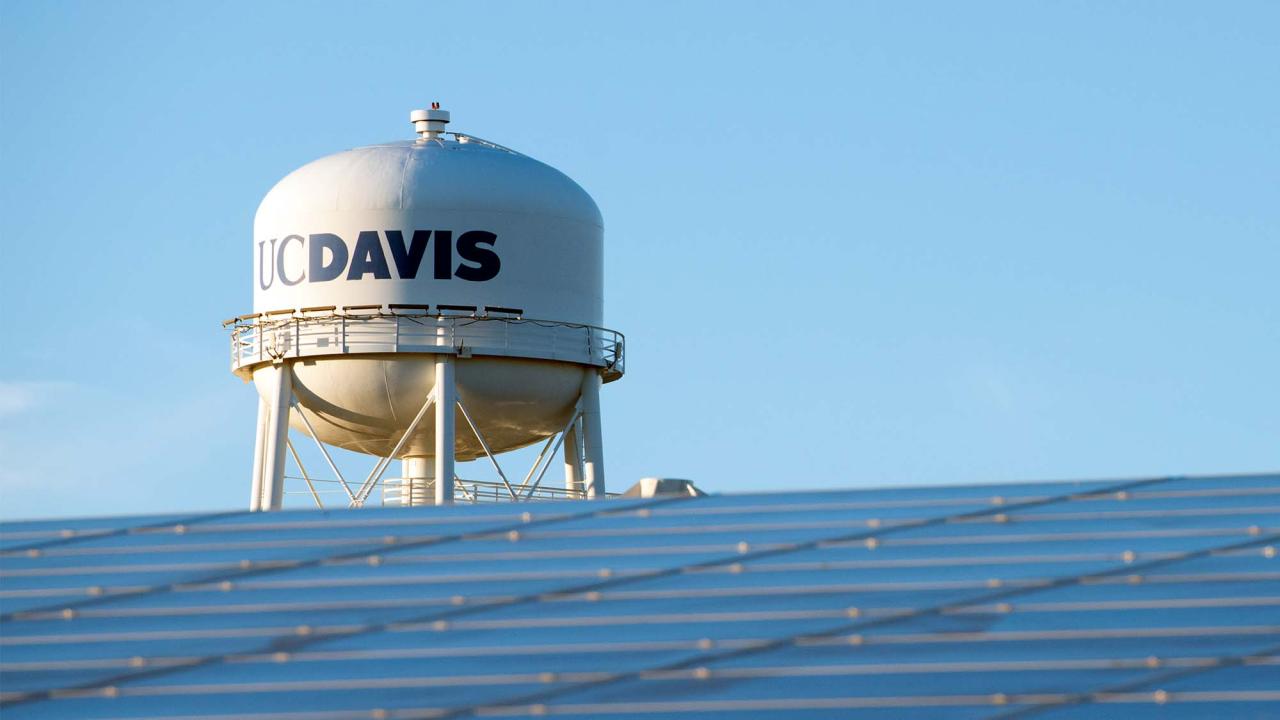To the UC Davis Community:
As a top-tier research institution, we know it is our duty to bring our expertise to bear on the world’s most serious problems. And there is no global issue more pressing than climate change. We are experiencing significant impacts in the form of extreme weather, such as extended periods of drought, sea level rise and species extinction.
At UC Davis, we’re doing our part to mitigate the growing climate emergency by finding innovative new ways to be sustainable, ensuring the world’s most vulnerable populations aren’t left behind, and practicing what we preach on our own campus.
UC Davis has been committed to climate research and sustainable practices for decades — it’s who we are. We’ve been recognized as No. 1 in the nation for higher education sustainability for seven years running and No. 5 in the world, according to the 2022 UI GreenMetric World University Rankings.
The work has never been more urgent than it is now. News about the devastating human toll from wildfires, heat waves and hurricanes reminds us that urgent action is needed.
An ongoing commitment
Ours is a campus community that cares deeply about sustainability, climate action and environmental justice.
Across the university, students, faculty and staff are engaged, and in fact, 21% of all courses offered here include some educational content related to sustainability. Our Campus Advisory Committee on Sustainability is developing a Fossil Fuel-Free Pathway Plan, the first of its kind in the UC system. You can provide input on the plan through Friday, Oct. 27.
The Arboretum and Public Garden and Office of Campus Planning created the UC’s first Living Landscape Adaptation Plan, a flexible framework to guide the transition of our landscapes to be climate-ready including a large-scale effort focused on our trees. More than 100 students in the Learning by Leading program are at the center of our campus’s on-the-ground adaptation.
Within research, faculty and students across all disciplines are finding innovative ways to create sustainable solutions, like making compostable wind turbine blades from bamboo and fungus to growing crops with less groundwater, just to name a couple. Our students and faculty are coming together to research and understand how climate issues are impacting social justice efforts while building equity into climate solutions.
There are many ways to make a difference and I encourage our community to get involved on campus. Learn how through Sustainable UC Davis.
A model campus
There’s no better place than UC Davis to learn about climate science and campus sustainability — and we practice what we teach. Our West Village housing community, a mixed-use neighborhood integrating student, faculty and staff housing, research and educational facilities, is the largest planned zero-net energy community in the nation and serves as a prototype for future campus mixed-use hubs.
Unitrans has made advancements toward a green future, and is shifting from natural gas to a fully electric bus fleet.
We also invested about $60 million in the first phase of Big Shift, a large-scale infrastructure project that lays the foundation for our campus’s move away from fossil fuels powering our operations, while immediately decreasing our energy and water use. We’re busy making plans for phase two of the Big Shift and preparing grants for future phases, including grants from the Inflation Reduction Act.
Our efforts toward a more sustainable future are too numerous to list, and these major commitments are a testament to why UC Davis was recognized for the third time with a gold rating by the Association for the Advancement of Sustainability in Higher Education’s Sustainability Tracking, Assessment and Rating System, or STARS.
Part of a bigger system of solutions
UC Davis and the UC system continue to advance climate action and sustainability goals. Last month, the University of California adopted new, stronger climate action goals. According to UC President Michael Drake: “It reflects the best current science and aligns the university’s ambitious new goals with those set by the state of California.”
California leads the world in developing the policies and technologies to both mitigate climate change and adapt to a changing environment. Over the years, many UC Davis scientists, economists and legal scholars helped usher in some of these landmark pieces of environmental legislation and regulation. That includes California’s Global Warming Solutions Act of 2006 – the world’s most aggressive and comprehensive legislation to reduce greenhouse gas emissions.
In 2007, California adopted the world’s first low-carbon fuel standard mandate. Our Institute of Transportation Studies helped pioneer that standard and shape the direction of other clean-fuel policies and technologies, informing policy at the local, state and national levels.
I’m grateful for everything being done to research and address the impacts of climate change, all while making UC Davis one of the most sustainable university campuses in the world. But the work doesn’t end here. The responsibility is on all of us to continue to push for creative new ways to contribute to a sustainable and equitable future.
Go Ags!
Sincerely,
Gary S. May
Chancellor
